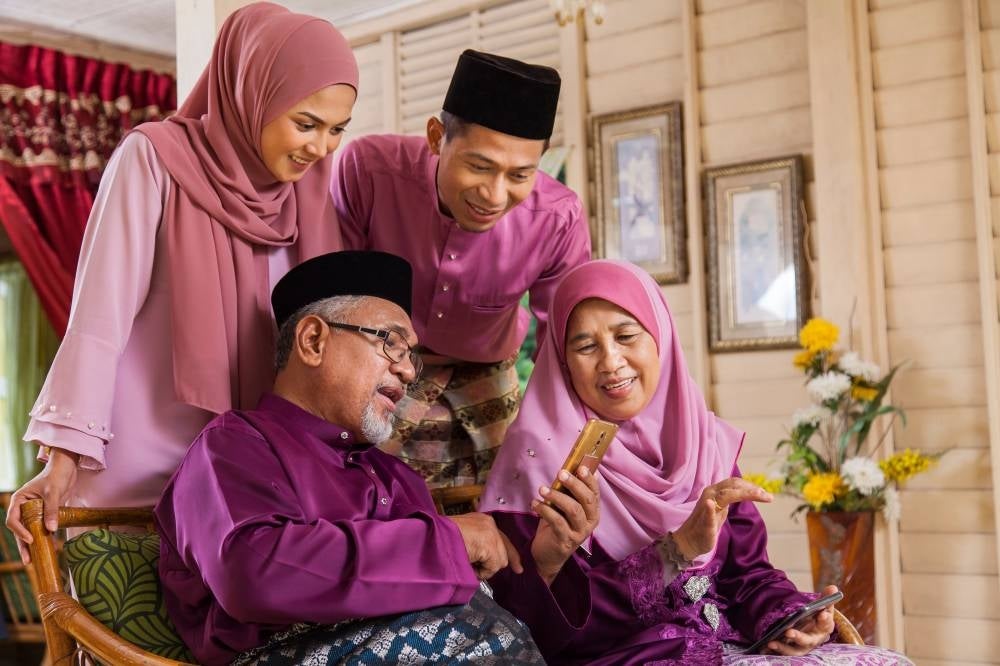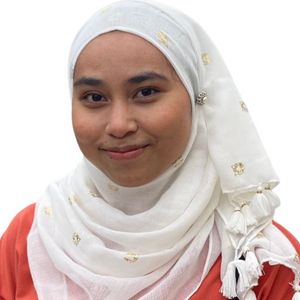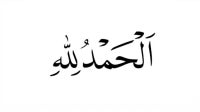Acts of Sunnah on the first day of Eid

The Prophet's practice is a Sunnah, which implies it sets a good example for others to follow. While this is not needed or suggested in religious concerns, it is considered good practice.
If a person does what the Prophet did in a similar situation because he thinks that what the Prophet did was best, he will be rewarded for his good intentions. So, many of the Prophet's companions did the same thing.
Here are some Sunnah's we could practice on the first day of Hari Raya Aidilfitri:
1. Recite the ‘takbir’
Hari Raya Aidilfitri is commemorated with the recitation of the takbir in order to emphasise the preeminence of Islam and to rejoice in overcoming the tests and trials of Ramadan.
According to the Federal Territory mufti, reciting the takbir is Sunnah based on the saying of Allah SWT:
"...and [wants] for you to complete the period and to glorify Allah for that [to] which He has guided you; and perhaps you will be grateful." [Surah al-Baqarah (185)]
Muslims are encouraged to recite the takbir aloud when the sun sets on the last day of Ramadan to demonstrate gladness and the supremacy of Islam. Imam al-Khatib al-Syirbini mentioned in his book:
“These all are related to the ruling of reciting takbir in loud voice and making it the eminence of that day (the day of ‘Eid).”
It is also Sunnah for Muslims to do this at all times and locations, beginning from when the sun sets on the last day of Ramadan and continuing until the imam raises his hand for the Aidilfitri prayer.
2. Bathe on the morning of Eid
As cleanliness is a fundamental component of our faith, taking a bath or doing ghusl in advance of Aidilfitri is recommended by our beloved Prophet Muhammad (saw).
Whether or not we will be celebrating Aidilfitri in the congregation or with family at home, taking the extra time to groom ourselves in preparation for it should still retain the same value.
It was narrated by Ibn Abbas (ra) that the Prophet Muhammad (saw) used to take a bath on the day of Hari Raya Aidilfitri.
3. Put on perfume
We are encouraged to wear musk or cologne before heading out to Eid prayer.
A good smell was important to the Prophet. He was keen that whoever was with him should be pleased with his smell. Therefore, the Prophet used to wear perfume when he went out.
Aisyah (ra) reports: “I used to give the Prophet the best smelling perfume we could have, and I would often see the brightness of perfume in his head and beard.” (Related by Al-Bukhari and Muslim)
The wording of this Hadith suggests that the Prophet's wives were concerned to make sure he had some perfume to wear when he left the house and that perfume was a prized possession in the Prophet's home. When he met people, he wanted to be sure that he smelled good.
“The Prophet disliked to go out to meet his companions without wearing some perfume. He would have a touch of perfume toward the end of the night.” (Related by Abu Al-Shaykh.) Needless to say, Aisyah is referring to the time of dawn when the Prophet went out to the mosque to offer Fajr prayer.
He constantly wore perfume because he cared deeply about how he smelled. Wearing perfume before leaving the house in the morning, whether for prayer or to go to work, is a nice habit to get into.
Hence, if you're a man, it is always a good practice to wear perfume and smell pleasant all day during Hari Raya Aidilfitri.
4. Eat a little before Eid prayer
Hari Raya Aidilfitri is a commemoration of feasting following the observance of Allah's (swt) command to fast during the month of Ramadan.
Therefore, it is logical that we observe this day by consuming breakfast early in the morning to indicate that we are no longer fasting.
It is from the sunnah of the Prophet (saw) to eat an odd number of dates before praying the Eid prayer.
It was narrated by Anas Ibn Malik (ra) that the Prophet Muhammad (saw) used to not go out on the morning of Eid until he had eaten some dates, of which he would eat an odd number. [Bukhari 953]
5. Wear our best outfit
In addition, it is Sunnah to wear the finest and cleanest clothing we possess for Eid. This does not mean that we must necessarily purchase new clothes for Eid, but the garments we wear should be unique. They should be spotless and new, in the sense of not having been worn daily.
It was narrated by Jaabir (rah) that the Prophet (saw) had a cloak which he would wear on the two Eids and on Fridays. [Saheeh Ibn Khuzaymah, 1756]
6. Walk to the mosque for Eid prayer
Walking to the mosque is a form of exercise that has numerous benefits in and of itself. It plays a crucial role in fortifying the body and providing vitality so that the individual can combat disease and illness.
It was narrated that Ubayy ibn Ka’b (rah) said, "There was a man, and I do not know of any man who lived further away from the mosque than he did, but he never missed a prayer. It was said – or I said – to him: Why don’t you buy a donkey that you can ride when it is dark or when the sand is too hot? He said: I would not like my house to be next to the mosque. I want my walking to the mosque and my returning when I come back to my family, to be recorded for me. The Messenger of Allah (saw) said: “Allah has gathered all that (reward) for you.” [Narrated by Muslim, 663]
Looking at this great reward from our generous Lord, the hadith indicates that the reward is given for the steps taken when returning from the prayer as well as when coming to it.
It was narrated that Abu Hurayrah (rah) said: The Messenger of Allah (saw) said, “Whoever purifies himself in his house then walks to one of the houses of Allah in order to perform one of the duties enjoined by Allah, for every two steps he takes, one will erase a sin and the other will raise him one degree in status.” [Narrated by Muslim, 666]
Additionally, walking to the mosque will serve to exercise the muscles and improve one's physical condition.
It helps to defend the body against diseases caused by inactivity and excessive sitting, particularly obesity because walking helps to burn fat.
It allows the heart to work harder and improves circulation and treatment for mental weariness and overthinking because it returns the mind to its normal state and allows one to relax both physically and psychologically.
7. Wish others in celebrating Eid
A month of fasting, intense spiritual practice, and worship is a significant accomplishment that should not be minimised or dismissed.
To congratulate one another on a job well done originates from the sunnah. Regardless of how it might have manifested for each of us individually based on our unique circumstances, we all put in a lot of labour throughout Ramadan.
The occasion of Hari Raya Aidilfitri honours all of those efforts and sacrifices. There are many forms of good wishes that can be exchanged during Eid such as Taqabbala Allaah minna wa minkum (may Allah (swt) accept good deeds from us and from you) and Eid Mubarak!
Jubayr ibn Nufayr said that when the companions of the Prophet (saw) met one another on the day of Eid, they would say to one another, “May Allaah accept (good deeds) from us and from you.” [Al-Fath, 2/446]
This is a particularly simple sunnah to follow, whether at home or in public. Make it a family affair, and be creative in how you express your Eid greetings this year.
Schedule a virtual conversation with family members and friends, send a personal text message, create a family Eid video and send it to loved ones, or drive by and deliver your congratulations in person.
These are some simple Sunnah for us to practice during Hari Raya Aidilfitri for a blessed celebration among loved ones.
Download Sinar Daily application.Click Here!















